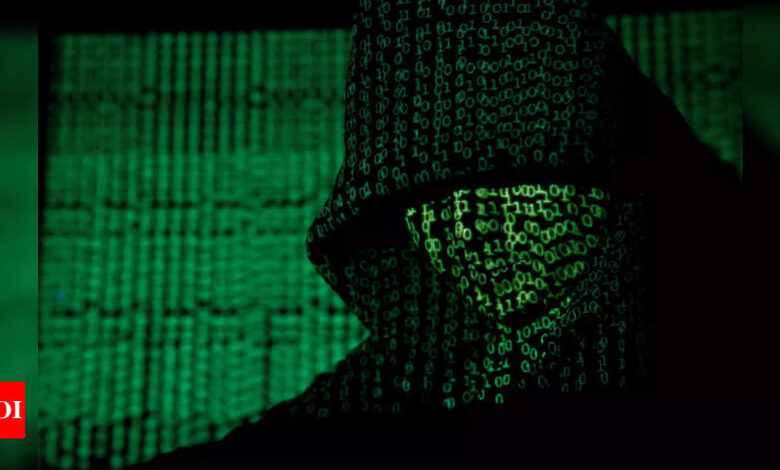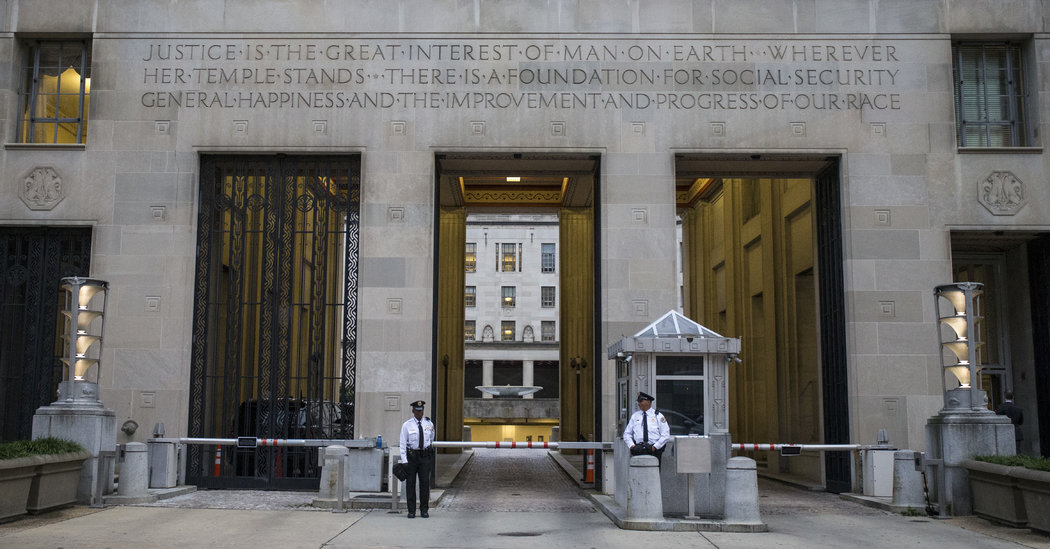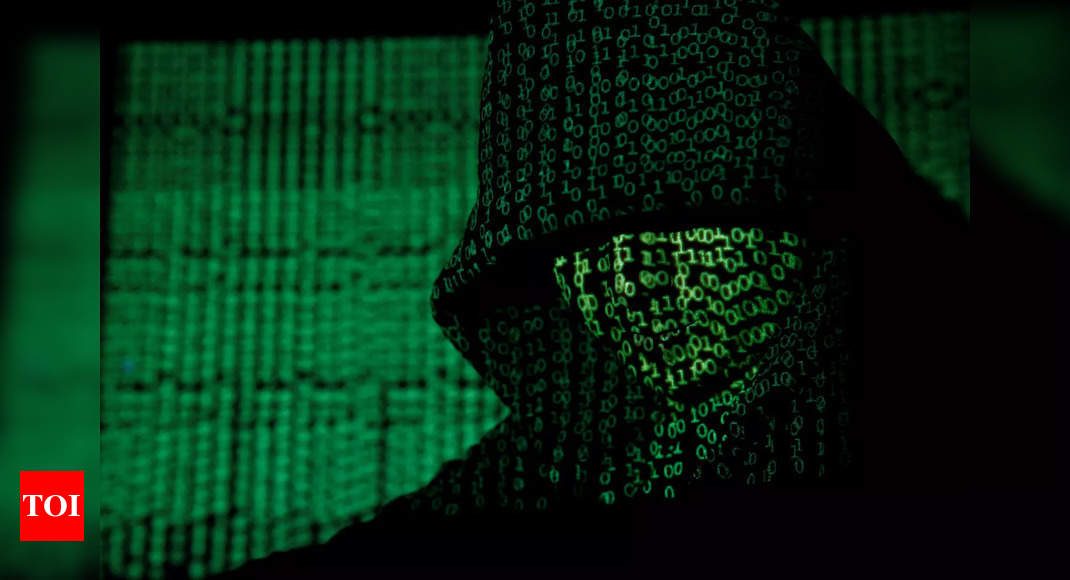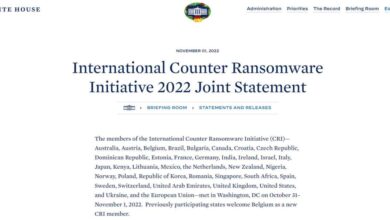
China and Russia Urge US to Halt Espionage and Cyberattacks
China and Russia urge the US to stop espionage and cyber attacks – a headline that’s ignited a firestorm of debate. The escalating tensions between these global superpowers are reaching a critical point, fueled by mutual accusations of cyber warfare and clandestine operations. This isn’t just a spat between nations; it’s a potential flashpoint with far-reaching consequences for global security and international relations.
We’ll delve into the specifics of the accusations, the evidence (or lack thereof), and the potential ramifications of this increasingly tense standoff.
The current geopolitical landscape is already fraught with challenges, and these accusations only exacerbate existing divisions. Understanding the historical context of espionage and cyberattacks between these nations is crucial to grasping the gravity of the situation. We’ll explore past incidents, examine the legal frameworks attempting to govern cyber warfare, and analyze the potential impact on global trade, diplomacy, and international cooperation.
Get ready for a deep dive into a complex and rapidly evolving situation.
The Geopolitical Context of the Accusation
The recent accusations by China and Russia against the US regarding espionage and cyberattacks are playing out against a backdrop of deeply strained geopolitical relations. The current international order is increasingly characterized by great power competition, with the US, China, and Russia vying for influence and dominance across various spheres, from economic and technological to military and ideological. This competition, often fraught with mistrust and suspicion, creates a fertile ground for accusations of clandestine activities.The history of espionage and cyberattacks between these nations is long and complex, marked by periods of cooperation and intense rivalry.
The Cold War legacy continues to cast a long shadow, shaping perceptions and fueling mistrust. Each nation has accused the others of interference in their internal affairs, theft of intellectual property, and attempts to destabilize their governments through various means, including cyber warfare. This history of mutual suspicion makes it difficult to assess the veracity of any single accusation in isolation.
Examples of Previous Accusations of Espionage and Cyberattacks
The history of accusations is extensive. For instance, the US has repeatedly accused China of large-scale intellectual property theft through cyberattacks targeting American companies and government agencies. Conversely, China has accused the US of using its advanced intelligence capabilities to spy on Chinese citizens and businesses. Similarly, both the US and Russia have engaged in a long-standing tit-for-tat exchange of accusations involving cyber espionage and interference in each other’s elections.
Notable examples include the alleged Russian interference in the 2016 US presidential election and subsequent US sanctions. The SolarWinds attack, attributed by the US to Russia, is another significant example of alleged state-sponsored cyber espionage targeting numerous US government agencies and private companies. These events have significantly damaged trust and increased tensions.
Existing Treaties and Agreements Related to Cyber Warfare
While there’s a lack of a comprehensive international treaty specifically addressing cyber warfare, various international legal frameworks attempt to address related issues. The UN Charter, for instance, prohibits the use of force, which could potentially encompass certain forms of cyberattacks. The Budapest Convention on Cybercrime offers a framework for international cooperation in investigating and prosecuting cybercrimes, though its scope is limited and its effectiveness depends heavily on the willingness of states to cooperate.
Additionally, several bilateral and multilateral agreements exist between various nations, focusing on aspects of cyber security and information sharing. However, these agreements often lack the enforcement mechanisms needed to effectively deter state-sponsored cyberattacks. The absence of a robust international legal framework makes attributing and responding to cyberattacks a complex and politically charged process. The effectiveness of existing agreements is often hampered by a lack of transparency and the difficulties inherent in tracing the origins of cyberattacks.
Specific Allegations Made by China and Russia
China and Russia have repeatedly accused the United States of widespread espionage and cyberattacks, targeting various sectors within their countries. These accusations, often made in tandem or separately, paint a picture of a persistent and aggressive US cyber campaign aimed at undermining their economic and national security interests. The specifics of these allegations, however, vary in detail and the level of evidence provided.The accusations are not simply blanket statements of wrongdoing.
Instead, they involve specific claims of intrusions into critical infrastructure, theft of intellectual property, and attempts to destabilize political systems. While the evidence presented is often considered insufficient by Western analysts, the sheer volume and consistency of these accusations warrants serious consideration. The nature of cyber warfare makes definitive proof notoriously difficult to obtain, leading to a situation where accusations and counter-accusations frequently fly without clear resolution.
Allegations of US Espionage Targeting Infrastructure
China has frequently alleged that US intelligence agencies have targeted critical infrastructure, including power grids and telecommunications networks. These claims suggest that the US aims to disrupt essential services and gain strategic advantage. For example, Chinese state media has often pointed to unexplained outages or security breaches as potential evidence of US involvement, though concrete links have never been definitively established.
Russia has echoed these concerns, adding that US actions have jeopardized the safety and reliability of their own infrastructure. While no specific incidents are consistently cited across both countries’ allegations, the recurring theme suggests a shared perception of a persistent threat.
Allegations of US Cyberattacks Targeting Government Agencies
Both China and Russia have accused the US of targeting their respective government agencies through sophisticated cyberattacks. These attacks are alleged to have aimed at stealing sensitive information, compromising national security, and undermining governmental operations. Specific agencies targeted have rarely been named publicly, likely due to national security concerns. However, the general claim points towards a pattern of targeting high-value governmental data and systems.
The alleged methods used include advanced malware, phishing campaigns, and exploitation of software vulnerabilities. Again, concrete evidence supporting these claims remains elusive, relying largely on circumstantial evidence and accusations rather than irrefutable proof.
Allegations of US Cyberattacks Targeting Private Companies
The accusations extend beyond governmental targets. Both China and Russia have alleged that US intelligence agencies have targeted private companies in their respective countries to steal trade secrets and intellectual property. This is presented as an economic warfare tactic, aiming to stifle innovation and economic growth. Specific companies are rarely identified, but the allegations frequently cite sectors such as technology, energy, and defense as particularly vulnerable.
The alleged methods mirror those used against government agencies, employing a range of techniques to gain unauthorized access and exfiltrate data. The lack of publicly available specific examples, however, hinders independent verification of these claims.
Comparison of Alleged US Methods with Those of Other Nations
While the US is accused of employing advanced cyber warfare techniques, China and Russia themselves are widely acknowledged to be major players in the global cyber espionage arena. The methods allegedly used by the US – such as advanced malware, zero-day exploits, and targeted phishing campaigns – are also frequently attributed to China and Russia in reports from various cybersecurity firms and government agencies.
This creates a complex and often confusing landscape, where accusations of state-sponsored cyberattacks are commonplace, and attribution remains extremely challenging. The similarities in techniques used by different nation-states further complicate the process of determining the true origin and intent behind various cyberattacks.
US Response and Counter-Arguments

The US government’s response to the accusations of espionage and cyberattacks from China and Russia has been multifaceted, involving a mix of outright denial, counter-accusations, and a highlighting of its own efforts to combat such activities. The response has been delivered through official statements, diplomatic channels, and public pronouncements by various government officials. The strategy appears aimed at deflecting blame, showcasing US cybersecurity initiatives, and maintaining a strong stance against what it views as unwarranted accusations.The core of the US counter-argument rests on the assertion that its actions are defensive and proportionate, aimed at protecting national security interests and countering the aggressive cyber activities of other nations.
The US government frequently points to its own significant investments in cybersecurity infrastructure and its efforts to collaborate internationally on cybersecurity norms and standards. This narrative attempts to portray the US as a responsible actor, reacting to, rather than initiating, hostile cyber actions.
Specific US Denials and Counter-Accusations, China and russia urge the us to stop espionage and cyber attacks
The US has consistently denied the specific allegations of espionage and cyberattacks leveled by China and Russia. Official statements often emphasize the commitment to upholding international law and norms in cyberspace. Counter-accusations are frequently made, alleging that China and Russia are themselves major perpetrators of cyber espionage and malicious cyber activities targeting US government agencies, businesses, and critical infrastructure.
These counter-accusations are often supported by citing specific incidents and attributing them to Chinese and Russian state-sponsored actors. The US often highlights the economic and national security damage caused by these alleged activities.
Examples of US Cybersecurity Efforts
The US government has invested heavily in various cybersecurity initiatives, both domestically and internationally. These include efforts to improve the security of critical infrastructure, bolster the cybersecurity capabilities of private sector companies, and develop and implement international norms for responsible state behavior in cyberspace. Examples include the establishment of the Cybersecurity and Infrastructure Security Agency (CISA) within the Department of Homeland Security, which plays a crucial role in coordinating national cybersecurity efforts.
Furthermore, the US participates in international forums and collaborates with allies to share information and develop strategies to combat cyber threats. The development and deployment of advanced cyber defense systems, including intrusion detection and prevention systems, are also key components of the US approach.
Comparison of Accusations, Evidence, and US Response
| Accusation (by China/Russia) | Evidence Presented (by China/Russia) | US Response | US Counter-Evidence/Argument |
|---|---|---|---|
| US-sponsored cyberattacks targeting critical infrastructure | (Hypothetical example: Leaked documents allegedly showing US government planning) | Denial; assertion that such actions would violate US policy and international law. | (Hypothetical example: Publicly available intelligence reports refuting the leaked documents’ authenticity or context) |
| US espionage targeting economic and technological secrets | (Hypothetical example: Alleged intercepted communications detailing US intelligence gathering operations) | Denial; claim that intelligence gathering activities are conducted in accordance with US law and international norms. | (Hypothetical example: Statements emphasizing the need for intelligence gathering to protect national security; highlighting that other nations engage in similar activities.) |
| US support for dissident groups engaging in cyberattacks | (Hypothetical example: Allegations of funding or training provided to groups responsible for cyberattacks) | Denial; assertion that the US does not support illegal cyber activities. | (Hypothetical example: Claims that the alleged groups act independently; statements about promoting human rights and freedom of expression, but not supporting illegal activities.) |
International Law and Cyber Warfare: China And Russia Urge The Us To Stop Espionage And Cyber Attacks
The accusations of espionage and cyberattacks between the US, China, and Russia highlight a critical gap: the lack of a comprehensive and universally accepted legal framework governing activities in cyberspace. While international law attempts to address these issues, its application in the digital realm presents significant challenges, impacting global security and international relations. The existing legal landscape is a patchwork of treaties, customary international law, and national legislation, struggling to keep pace with the rapid evolution of technology.The application of international law to the digital realm is fraught with difficulties.
Traditional legal concepts, designed for physical warfare, struggle to translate seamlessly to the virtual world. Attribution of attacks is incredibly complex, often requiring extensive technical analysis and cooperation, which is frequently lacking in times of geopolitical tension. The speed and scale of cyberattacks also present challenges, making timely responses and effective enforcement difficult. Furthermore, the decentralized and anonymous nature of the internet makes identifying perpetrators and holding them accountable a significant hurdle.
The lack of clear jurisdictional boundaries in cyberspace further complicates matters, with states often claiming jurisdiction over actions that originate or impact their territory, even if the perpetrators are located elsewhere. This often leads to conflicting interpretations of international law and the potential for escalation.
Challenges in Applying International Law to Cyber Warfare
The ambiguity surrounding the definition of “cyber warfare” itself poses a considerable obstacle. Is a denial-of-service attack against a critical infrastructure provider an act of war, or simply a criminal act? The line is often blurred, making it difficult to determine which legal instruments apply. Existing treaties, such as the Geneva Conventions, focus primarily on physical warfare and do not adequately address the unique characteristics of cyberattacks.
While the UN Charter prohibits the use of force against the territorial integrity or political independence of any state, the interpretation of “force” in the context of cyberattacks remains a subject of ongoing debate. Some argue that large-scale, destructive cyberattacks could constitute an armed attack, triggering the right to self-defense under Article 51 of the UN Charter. However, others maintain that a lower threshold of harm is required to invoke self-defense in cyberspace.
This lack of clarity creates a significant legal grey area, potentially emboldening states to engage in aggressive cyber activities.
Key Legal Principles Involved in Cyber Warfare
The following principles are central to the legal discussion surrounding cyber warfare, though their application in the digital realm remains a subject of ongoing debate and interpretation:
- Sovereignty: States have the right to control their territory, including cyberspace, and to protect their critical infrastructure from cyberattacks.
- Non-intervention: States should refrain from interfering in the internal affairs of other states through cyber means.
- Proportionality: The response to a cyberattack should be proportionate to the scale and severity of the attack itself.
- Distinction: Cyberattacks should be directed only at military targets or other legitimate military objectives, and should avoid civilian casualties or collateral damage.
- Responsibility: States are responsible for ensuring that their territory is not used to launch cyberattacks against other states.
- Attribution: Establishing definitive attribution of a cyberattack is crucial for holding perpetrators accountable. However, this often proves extremely difficult in practice.
Potential Implications for International Relations and Global Security
The ongoing accusations of espionage and cyberattacks between major powers carry significant implications for international relations and global security. A lack of clear legal frameworks and the difficulties in attribution can lead to an escalation of cyber conflicts, potentially triggering conventional military responses. The risk of miscalculation and accidental escalation is high, particularly given the speed and scale at which cyberattacks can unfold.
The erosion of trust between states, coupled with the potential for significant economic and social disruption caused by large-scale cyberattacks, further destabilizes the international order. The lack of a robust international legal framework increases the likelihood of a cyber arms race, with states investing heavily in offensive and defensive cyber capabilities, further exacerbating tensions. This environment fosters an atmosphere of uncertainty and insecurity, potentially leading to a dangerous cycle of escalation and retaliation.
Potential Consequences and Future Implications
The escalating tensions between the US, China, and Russia, fueled by mutual accusations of espionage and cyberattacks, carry significant potential for destabilization across various global domains. The consequences extend far beyond simple diplomatic spats, impacting international trade, security cooperation, and the very fabric of global governance. Understanding these potential outcomes is crucial for anticipating and potentially mitigating future conflicts.The interconnected nature of the global economy means that a significant deterioration in US-China-Russia relations could trigger a cascade of negative effects.
China and Russia’s call for the US to cease espionage and cyberattacks highlights a critical need for robust cybersecurity. Protecting sensitive data in today’s cloud-centric world is paramount, which is why understanding solutions like those offered by Bitglass, as detailed in this excellent article on bitglass and the rise of cloud security posture management , is so important.
Ultimately, strong cybersecurity measures are crucial in preventing the very kinds of attacks that prompted China and Russia’s concerns.
Reduced trust could lead to increased trade barriers, investment restrictions, and supply chain disruptions. This could manifest in higher prices for consumers, reduced economic growth, and potentially even global recessionary pressures, mirroring the effects seen during previous periods of heightened geopolitical tension.
Impact on Global Trade and Diplomacy
A breakdown in trust between these major global powers will inevitably impact international trade. We could see a resurgence of protectionist policies, with countries imposing tariffs and quotas on goods and services from each other. This would disrupt established supply chains and negatively impact global economic growth. Furthermore, diplomatic efforts to address shared challenges, such as climate change or pandemics, could be severely hampered by the lack of cooperation and trust.
The potential for multilateral agreements to collapse is very real, as we have seen in instances where major powers have clashed on other issues, resulting in a slowdown or complete halt in collaborative efforts. A specific example could be the stalling of climate change negotiations due to heightened geopolitical tensions, mirroring events seen in the past.
Impact on Security Cooperation
The accusations of espionage and cyberattacks undermine the foundation of security cooperation. Joint efforts to combat terrorism, transnational crime, and other threats will become more difficult, if not impossible. This could lead to a dangerous security vacuum, allowing non-state actors and rogue states to exploit the situation. The potential for miscalculation and accidental escalation is also significantly increased in this environment of mistrust and heightened military readiness.
China and Russia’s call for the US to cease its espionage and cyberattacks highlights the growing tension in the digital sphere. Building secure and robust systems is crucial, and that’s where understanding the advancements in application development comes in; check out this article on domino app dev the low code and pro code future for insights into creating more secure applications.
Ultimately, stronger digital defenses are vital in this increasingly volatile geopolitical climate, directly impacting how nations respond to accusations of cyber warfare.
We could see a renewed arms race, as each nation seeks to enhance its defensive and offensive capabilities, mirroring the Cold War era.
Potential Responses and Escalation Scenarios
Several response scenarios are plausible. The US might choose to impose further sanctions on Chinese and Russian entities, potentially leading to retaliatory measures. China and Russia, in turn, could deepen their strategic partnership, increasing military exercises and joint operations. This scenario could lead to a new Cold War-like dynamic, with the potential for proxy conflicts and an intensified cyber arms race.
Alternatively, the three nations could opt for a diplomatic approach, initiating high-level talks aimed at de-escalating tensions. This could involve confidence-building measures, such as increased transparency in military activities and agreements to limit cyber operations. This de-escalation scenario would depend heavily on the willingness of all parties to compromise and engage in good-faith negotiations. A successful de-escalation, however, would likely require concessions from all sides, including potentially the withdrawal of some accusations and a commitment to refraining from certain actions.
The success of this approach would depend heavily on a willingness to engage in meaningful dialogue and compromise.
Public Perception and Media Coverage
The accusations of espionage and cyberattacks levied against the US by China and Russia have been met with a complex and often polarized response in the global media landscape. The narrative surrounding these allegations varies significantly depending on the country of origin and the specific news outlet, reflecting existing geopolitical tensions and pre-existing biases. This diverse portrayal has undeniably shaped public opinion in the US, China, and Russia, impacting foreign policy perceptions and international relations.The differing narratives presented across various media sources highlight the challenges of discerning objective truth in an increasingly fragmented information environment.
State-controlled media outlets often present a starkly different picture compared to independent journalism, leading to a significant disparity in public understanding of the events. This makes navigating the information landscape crucial for informed public discourse.
Portrayal in Different National Media Outlets
US media coverage has largely focused on the potential threat posed by Chinese and Russian cyber activities, emphasizing the need for stronger national cybersecurity measures and highlighting instances of alleged economic espionage and intellectual property theft. Some outlets have framed the accusations within the context of a broader geopolitical rivalry, portraying China and Russia as adversaries actively seeking to undermine US interests.
Conversely, Chinese and Russian media outlets have largely dismissed the accusations as baseless, portraying them as an attempt by the US to deflect attention from its own alleged cyber activities and to justify its aggressive foreign policy. They often counter-narrate by highlighting instances of alleged US interference in their internal affairs. Independent international news organizations have generally attempted to present a more balanced perspective, though their coverage is often influenced by their own geopolitical context and editorial leanings.
Impact of Media Coverage on Public Opinion
In the US, the dominant narrative of a significant threat from China and Russia has likely fueled concerns about national security and increased public support for measures aimed at countering cyberattacks and espionage. Conversely, in China and Russia, the portrayal of the accusations as US propaganda has likely solidified existing anti-American sentiment and strengthened public support for the respective governments’ responses.
The different narratives have created distinct realities for citizens in each country, further widening the gap in understanding and trust between nations.
Examples of Differing Narratives
For instance, a US news report might highlight a specific instance of alleged Chinese hacking targeting a US defense contractor, emphasizing the potential compromise of sensitive military information. A Chinese news report, on the other hand, might focus on US accusations of Chinese espionage, labeling it as a smear campaign designed to damage China’s international reputation and economic growth. A Russian news source might frame the accusations as part of a broader US campaign to contain Russia’s influence globally.
These differing frames, while all referencing the same core events, create dramatically different interpretations and conclusions for the respective audiences.
Illustrative Depiction of Differing News Presentation
Imagine three television news broadcasts: The first, from a US network, features tense music and dramatic visuals, showcasing a graphic of a computer screen with flashing red alerts, accompanied by a stern anchor detailing the threat of Chinese hacking. The second, from a Chinese state broadcaster, shows calm visuals of a bustling city, with the anchor calmly dismissing the accusations as baseless and highlighting China’s commitment to cybersecurity cooperation.
The third, from an international news network, features a more neutral tone, presenting both sides of the story with interviews from experts and officials from all three countries, employing a more measured and balanced approach. This contrast in visuals, music, and overall tone significantly influences the viewer’s perception of the accusations and the credibility of the sources.
Conclusion

The accusations hurled by China and Russia against the US regarding espionage and cyberattacks represent a significant escalation in the ongoing geopolitical struggle for global influence. While the evidence remains contested, the very act of these accusations highlights a growing distrust and a breakdown in communication between these major powers. The potential consequences are immense, ranging from further economic sanctions and diplomatic isolation to, in the worst-case scenario, a full-blown cyber war.
The international community needs to actively engage in finding solutions to prevent this situation from spiraling further out of control, fostering a greater emphasis on establishing clear international norms and regulations in the digital realm.
Questions and Answers
What specific types of cyberattacks are alleged?
The accusations are broad, encompassing everything from theft of intellectual property and industrial secrets to attacks on critical infrastructure and government systems. Specific examples are usually kept classified for national security reasons.
What role do international organizations play in addressing these accusations?
Organizations like the United Nations have a role to play in fostering dialogue and potentially mediating disputes, but the effectiveness is often limited by the lack of universally accepted legal frameworks for cyber warfare.
How does public opinion influence the situation?
Public opinion, shaped by media narratives and nationalistic sentiments, can significantly impact government policies and the overall trajectory of the situation. A more informed public is crucial for encouraging responsible decision-making.
What are the potential economic consequences?
Escalation could lead to trade wars, sanctions, and disruptions to global supply chains, potentially impacting economic growth worldwide.





